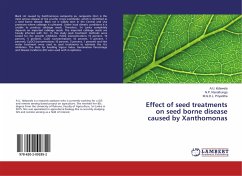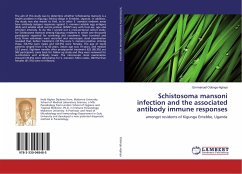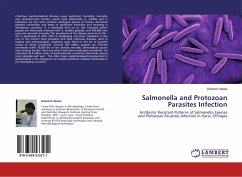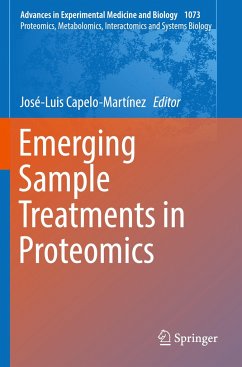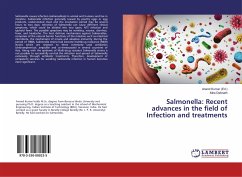
Salmonella: Recent advances in the field of Infection and treatments
Versandkostenfrei!
Versandfertig in 6-10 Tagen
24,99 €
inkl. MwSt.

PAYBACK Punkte
12 °P sammeln!
Salmonella causes infection (salmonellosis) in animal and humans and live in intestine. Salmonella infection generally caused by poultry eggs or egg products, undercooked meat and the incubation period may be several hours to two days. Infection of Salmonella can cause different clinical symptoms, which could be divided into two types, NTS infection and typhoid fever. The possible symptoms may be vomiting, nausea, diarrhea, fever, and headache. The host defense mechanisms against Salmonellae, comprises of the natural barrier functions of the intestine such as intestinal microbiota, the mechani...
Salmonella causes infection (salmonellosis) in animal and humans and live in intestine. Salmonella infection generally caused by poultry eggs or egg products, undercooked meat and the incubation period may be several hours to two days. Infection of Salmonella can cause different clinical symptoms, which could be divided into two types, NTS infection and typhoid fever. The possible symptoms may be vomiting, nausea, diarrhea, fever, and headache. The host defense mechanisms against Salmonellae, comprises of the natural barrier functions of the intestine such as intestinal microbiota, the mechanisms of innate and adaptive immunity. During the period of 1980s, Salmonella strains had become multidrug resistance (MDR) strains which are resistant to three commonly used antibiotics (chloramphenicol, ampicillin and co-trimoxazole) in several countries of Asia. Along with the epidemic of Multi-drug resistant Salmonella strains is not possible to successfully control the infection and spread of Salmonella exclusively through antibiotic treatments. Therefore, development of competent vaccines for avoiding Salmonella infection in human becomes more significant.



